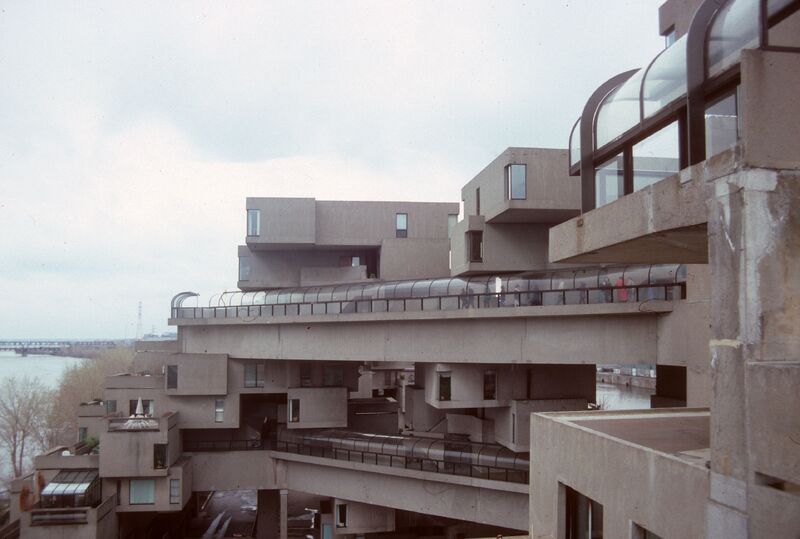Habitat 67
Item
- Title
- Habitat 67
- Creator
- Moshe Safdie (Canadian architect, born 1938)
- City
- Montreal, Quebec, Canada
- Country
- Canada
- Date Created
- 1967 (creation)
- Century
- 20th century
- Classification
- Architecture and City Planning
- Style/Period
- Brutalist
- Modernist
- Cultural Context
- Canadian
- Materials
- concrete
- glass
- Techniques
- construction
- Description
- Safdie's first architectural success was Habitat '67, built for Expo '67 in Montreal. Although Habitat cannot be considered a pioneering work of industrialized reinforced concrete building, Safdie's contribution to this architectural method was to give new dimensions to living spaces by using interlocking units that contained their own support system. By eliminating the need for exterior skeletal support, he created an economically viable way to construct individualized homes that could adapt to any environment or individual, yet only require one basic unit of construction. Using a single box construction, Safdie created 158 homes in 15 different styles from 351 modular construction units. The result was a visually dramatic three-dimensional communal space (living units, lift shafts, streets, recreational space) where all the units participate in carrying the structural load.
- Source
- Saif Haq
- Photographer
- Saif Haq
- Rights Holder
- © Saif Haq
- Access Rights
- Users must request permission from the copyright holder for all use in publications, including theses and dissertations.
Moshe Safdie (Canadian architect, born 1938), “Habitat 67”, Saif Haq Collection, accessed June 19, 2025, https://exhibits.lib.ttu.edu/s/haq/item/16366


